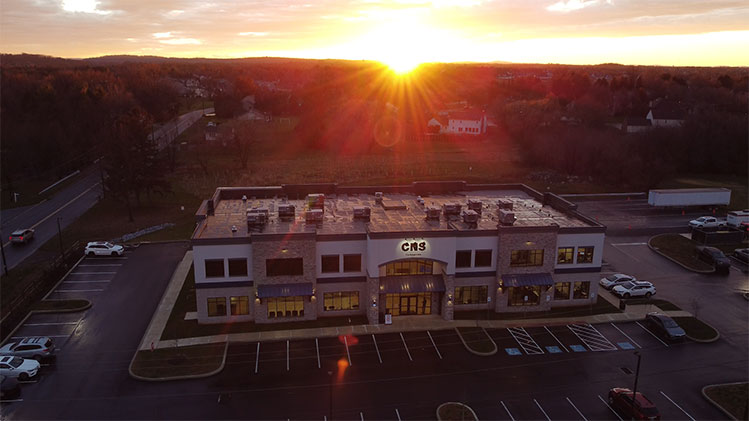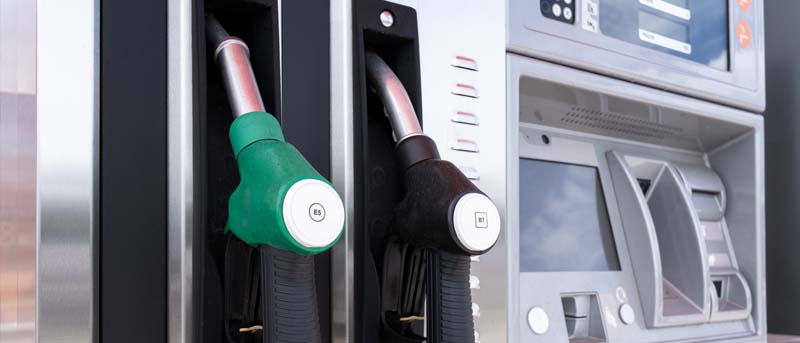How Fleets Can Easily Remove Crash Preventability Off CSA Scores
CNS can help with our Roadside & Incident Report Management service where a team of DOT Compliance Specialists will assess the Department of Transportation safety records
We are a team of DOT Compliance and Licensing Professionals helping trucking and transportation companies remain safe, compliant, and profitable.
CNS or Compliance Navigation Specialists is DOT Compliance company that assists trucking and transportation companies remain DOT Compliant. We are part of a network of companies, CNS Companies, specializing in services related to the transportation, manufacturing, construction, service, education and medical industries.

A full-scale DOT Compliance Program managing a long haul carrier’s safety, compliance, licensing and more.
Learn more >>>
A DOT Compliance Program that keeps motor carriers compliant with the 6 Basic DOT Regulations required of all carriers.
Learn more >>>
Our Short-Haul/Construction Program is a full-scale program designed for private carriers that do not haul for-hire.
Learn more >>>
Our most comprehensive DOT Compliance Program, operating as your company’s off-site Safety Director or assisting your current safety personnel.
Learn more >>>
Our Non-CDL Program is a full-scale program managing safety, compliance, licensing and more for moving companies, couriers, landscapers, or any company subject to DOT regulations and does not employ CDL drivers.
Learn more >>>
Our DOT Audit Services cover a number of different types of DOT Audits that new and existing carriers will be subject to.
Our DOT Driver Services help trucking companies and carriers to stay compliant as they grow and hire more drivers.
Our DOT Vehicle Services focus on ensuring your vehicles are compliant with DOT Regulations, which is just as important as your drivers.
Our DOT Services for Special Carriers focus on companies outside of the typical motor carrier, like HAZMAT, Passenger and Bus Carriers.
CNS is part of a group of companies that offer other necessary services for the trucking and transportation industry, such as Commercial Trucking Insurance, CDL Training, Online Training Course, and even Healthcare.
Our DOT Licensing Services will cover you whether you are an existing company or just starting a trucking company. Our DOT Licensing Specialists can help you get up and running and in days with your DOT number, MC Authority, EIN, UCR, IFTA, 2290 HVUT, Fuel Taxes and can even set you up to get your Commercial Driver's License (CDL) with CNS Driver Training Center.
Our DOT Licensing Specialists will help you with every aspect of starting a trucking company. All you need to do is choose a name for your trucking company.
You will need to ensure your DOT Number, MC Authority, Vehicle Registration, etc. is all set up properly when you start your trucking business.
Our Licensing Specialists can help with all aspects of filing and renewing licenses, fuel taxes, etc.
CNS is part of a group of companies that offer other necessary services for the trucking and transportation industry, such as Commercial Trucking Insurance, CDL Training, Online Training Course, and even Healthcare.
CNS can help with our Roadside & Incident Report Management service where a team of DOT Compliance Specialists will assess the Department of Transportation safety records
CNS or Compliance Navigation Specialists is DOT Compliance company that assists trucking and transportation companies remain DOT Compliant. We are part of a network of companies, CNS Companies, specializing in services related to the transportation, manufacturing, construction, service, education and medical industries.
CNS Companies is a network of companies specializing in services related to the transportation, manufacturing, construction, service, education and medical industries. Our DOT Compliance division is handled by Compliance Navigation Specialists, CNS Insurance handles Commercial Truck Insurance, CDL training is managed by the CNS Driver Training Center and healthcare is managed by CNS Occupational Medicine.
We are a team of DOT Compliance and Licensing Professionals helping trucking and transportation companies remain safe, compliant, and profitable.
CNS or Compliance Navigation Specialists is DOT Compliance company that assists trucking and transportation companies remain DOT Compliant. We are part of a network of companies, CNS Companies, specializing in services related to the transportation, manufacturing, construction, service, education and medical industries.

A full-scale DOT Compliance Program managing a long haul carrier’s safety, compliance, licensing and more.
Learn more >>>
A DOT Compliance Program that keeps motor carriers compliant with the 6 Basic DOT Regulations required of all carriers.
Learn more >>>
Our Short-Haul/Construction Program is a full-scale program designed for private carriers that do not haul for-hire.
Learn more >>>
Our most comprehensive DOT Compliance Program, operating as your company’s off-site Safety Director or assisting your current safety personnel.
Learn more >>>
Our Non-CDL Program is a full-scale program managing safety, compliance, licensing and more for moving companies, couriers, landscapers, or any company subject to DOT regulations and does not employ CDL drivers.
Learn more >>>
Our DOT Audit Services cover a number of different types of DOT Audits that new and existing carriers will be subject to.
Our DOT Driver Services help trucking companies and carriers to stay compliant as they grow and hire more drivers.
Our DOT Vehicle Services focus on ensuring your vehicles are compliant with DOT Regulations, which is just as important as your drivers.
Our DOT Services for Special Carriers focus on companies outside of the typical motor carrier, like HAZMAT, Passenger and Bus Carriers.
CNS is part of a group of companies that offer other necessary services for the trucking and transportation industry, such as Commercial Trucking Insurance, CDL Training, Online Training Course, and even Healthcare.
Our DOT Licensing Services will cover you whether you are an existing company or just starting a trucking company. Our DOT Licensing Specialists can help you get up and running and in days with your DOT number, MC Authority, EIN, UCR, IFTA, 2290 HVUT, Fuel Taxes and can even set you up to get your Commercial Driver's License (CDL) with CNS Driver Training Center.
Our DOT Licensing Specialists will help you with every aspect of starting a trucking company. All you need to do is choose a name for your trucking company.
You will need to ensure your DOT Number, MC Authority, Vehicle Registration, etc. is all set up properly when you start your trucking business.
Our Licensing Specialists can help with all aspects of filing and renewing licenses, fuel taxes, etc.
CNS is part of a group of companies that offer other necessary services for the trucking and transportation industry, such as Commercial Trucking Insurance, CDL Training, Online Training Course, and even Healthcare.
CNS can help with our Roadside & Incident Report Management service where a team of DOT Compliance Specialists will assess the Department of Transportation safety records
CNS or Compliance Navigation Specialists is DOT Compliance company that assists trucking and transportation companies remain DOT Compliant. We are part of a network of companies, CNS Companies, specializing in services related to the transportation, manufacturing, construction, service, education and medical industries.
CNS Companies is a network of companies specializing in services related to the transportation, manufacturing, construction, service, education and medical industries. Our DOT Compliance division is handled by Compliance Navigation Specialists, CNS Insurance handles Commercial Truck Insurance, CDL training is managed by the CNS Driver Training Center and healthcare is managed by CNS Occupational Medicine.

PennDOT relies on gas tax to fund 78% of its’ revenue needs, far more than neighboring states
With major gas-powered automakers transition to manufacture electric vehicles by 2035 and people driving less during the pandemic, PennDOT officials say the gas tax is no longer able to generate the money that is needed to keep the state’s transportation network in good repair.
PA Governor Tom Wolf charges the Transportation Revenue Options Commission to come up with ideas to phase out the state’s gas tax that is around 53 cents a gallon, the second highest in the nation.
With that in mind, the commission proposed phasing in an 8.1-cent-per-mile user fee over a five-year period, doubling the state’s vehicle registration fee, higher sales tax on vehicle purchases, an electric car fee, and a goods delivery fee taking advantage of online buying and delivery.
As we wait for TROC’s final draft, they hope it would begin at the time of the governor’s budget presentation in February 2022 with the goal of acting on it by July 1, 2022.
Rebecca Oyler of the Pennsylvania Motor Truck Association said the trucking industry would oppose the proposed doubling of vehicle registration fees, which will make the commonwealth have the second-highest truck registration fee in the nation.
A VMT tax has become a popular option because it makes the taxes on road use fair across all vehicle types. Instead of paying gas taxes at the fuel pump or high registration fees, drivers would pay based on how much they actually drive and would capture electric vehicles that do not fill up at a station.
A vehicle miles traveled tax (VMT) charges motorists based on their road usage measured in mileage using an onboard vehicle telematics device to capture the distance driven by a vehicle through GPS.
A recent study in the Journal of Public Economics found that implementing a vehicle mileage traveled tax is a more efficient policy than raising the gas tax as VMT tax is designed to increase highway spending $55 billion per year and increases annual welfare by $10.5 billion or nearly 20% more than a gasoline tax does.
In Oregon, where their experiment with a vehicle-miles-traveled fee has been hailed nationally as a bold step toward what may eventually become a reality, lawmakers are considering a bill that would require owners of new, fuel-efficient cars and trucks to pay a fee for every mile they drive beginning in 2026.
Oregon has estimated its highway fund, of which 40% comes from gas tax revenues, will be insolvent by 2024 without significant action.
However, current gas taxes are simple to administer at the pump and can be adjusted using existing mechanisms while a VMT tax would require installing new telematic devices in all personal and commercial vehicles to track distance traveled.
Many assume that this would require every vehicle owner to periodically (or automatically) report distance tax and create a new bureaucracy auditing these reports, which could eat up any gains in tax revenue.
The Oregon House Bill addresses these concerns as the fee would apply only to owners of new 2027 vehicles that don’t use gas or get 30 miles or more per gallon of gasoline and drivers would be able to opt out of tracking their mileage and pay a flat annual fee of $400. However, the flat fee provision would expire in 2030.
California and Washington are considering linking a drivers’ VMT fee to a formula that factors in the fuel efficiency of their vehicles, which Tesla—the electric vehicle company—testified as their suggestion, as well as this “provides an incentive for people to buy more efficient vehicles and to drive them more efficiently.”
We will have to wait to see what happens in Pennsylvania, but the discussion is heating up and there is pressure to solve the lost gas tax revenues quickly.
CNS is a full-service tax provider that can manage the entire process for you from start to finish and offers custom simple solutions for companies of all sizes.
Our fuel tax specialists will work with you to collect your data, ensure your fuel and mileage match, prepare your filings, and even file the paperwork for you directly.

FMCSA wants to completely overhaul its verification processes and improve the customer experience; and this includes ending MC numbers. The trucking industry has known about

In Pennsylvania, registering your commercial vehicles with the International Registration Plan (IRP) is an option that allows for interstate operation (across state lines) under a

Last year I wrote about how 2024 UCR Fees were reducing 9% (after reducing 31% for 2023) before anticipated increase for 2025. Well, now we

While Pennsylvania is just 1 of 14 states that still require annual vehicle inspections, a package of bills proposed by a state senator would abolish
Our DOT Compliance Programs ensure it is your top priority and keeps your business running.
Receive the latest transportation and trucking industry information about FMCSA and DOT Audits, Regulations, etc.

FMCSA wants to completely overhaul its verification processes and improve the customer experience; and this includes ending MC numbers. The trucking industry has known about

In Pennsylvania, registering your commercial vehicles with the International Registration Plan (IRP) is an option that allows for interstate operation (across state lines) under a

Last year I wrote about how 2024 UCR Fees were reducing 9% (after reducing 31% for 2023) before anticipated increase for 2025. Well, now we
Join our monthly newsletter and stay up-to-date on trucking industry news and receive important compliance and licensing tips.
Join our monthly newsletter and stay up-to-date on trucking industry news and receive important compliance and licensing tips.